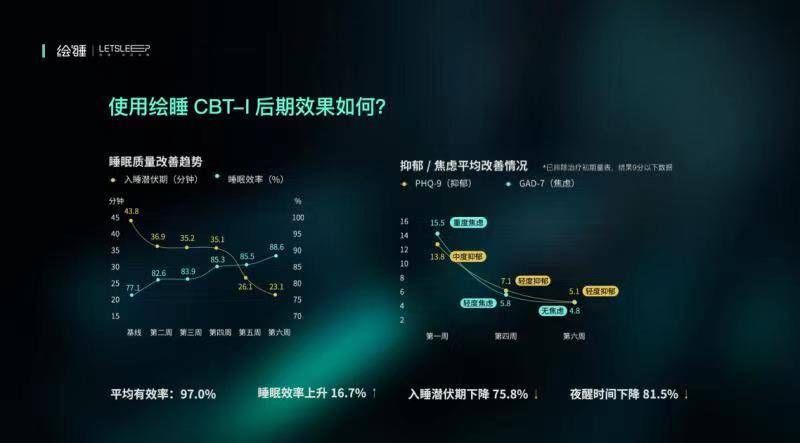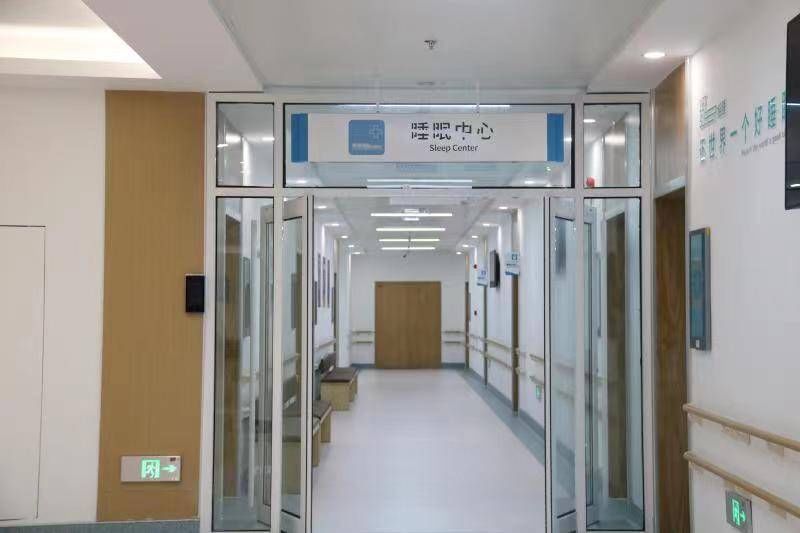Correspondent Fang Zhihao, Reporter Wang Zhongcai
HuaiSleep CBT-I, in conjunction with the Asian Sleep Medicine Association and the China Sleep Research Association, jointly developed a set of intelligent monitoring hardware + drawing Sleeping APP + digital prescription for one-to-one communication with psychological counselors. This is a set of digital therapy based on the theoretical framework of CBT-I, combined with AI algorithm model to customize personalized insomnia solutions, to help people with insomnia make changes in psychology, behavior and cognition, and restore healthy sleep.

In the fast-paced modern society, sleep problems exist in all fields, even teenagers. Affected by heavy academic pressure, sleep environment and the Internet, sleep deprivation is common among contemporary adolescents, and its severity increases significantly as the learning stage rises. Serious staying up late, difficulty falling asleep, anxiety before going to bed, sleepiness during the day… The sleep problems of teenagers are becoming more and more prominent.

College candidates are under a lot of academic pressure. They often stay up late into the morning or even overnight to complete their homework, making it difficult to concentrate during the day. 67% of the students said that the questions they had done came up as soon as they closed their eyes in bed, and they couldn’t stop thinking and couldn’t fall asleep; 39% of the students played with their mobile phones before going to bed, which was caused by not falling asleep immediately. They are nervous and anxious, which makes it more difficult to fall asleep; 18% of the students have chaotic biological clocks, often stay up late to study or surf the Internet, and forcefully get up during the day, their sleep time is constantly compressed, and they are tired and sleepy during the day, so they can make up for sleep in the gaps between classes; 31% of students Bearing the expectations and pressures from parents, schools, and themselves, their inner anxiety and depression cannot be resolved, which in turn aggravates insomnia, making them more depressed; 42% of students have insomnia due to their sleeping environment.

Through CBT-I treatment, the student’s sleep-onset latency was shortened to less than 20 minutes, and the sleep began to improve significantly in the 4th week of treatment, and the sleep efficiency gradually increased. After the end of the sleep efficiency reached 89%, the personal state has also been significantly improved, and I will be more positive and optimistic to devote myself to learning, and the adjustment of personal emotions through CBT-I is continuous, and will also be applied to my future study and life.